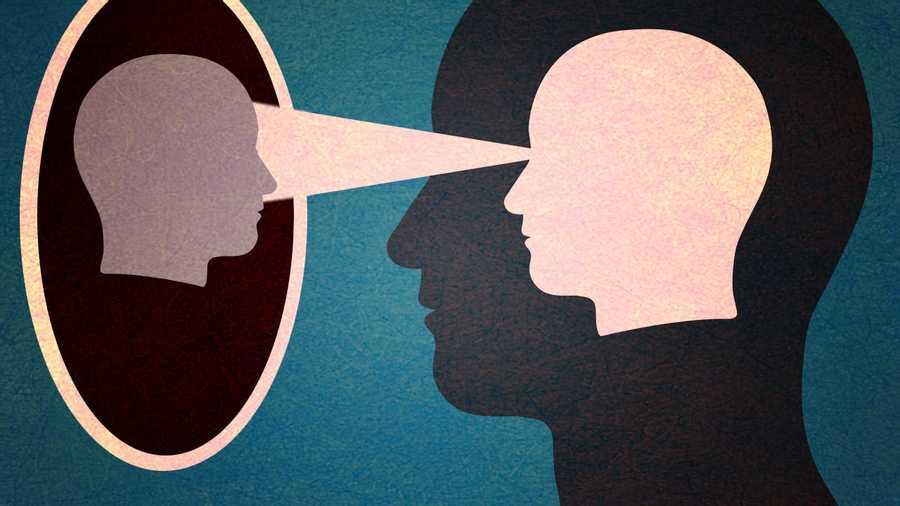Nine Things You Don’t Know about Yourself
Curated from: greatergood.berkeley.edu
Ideas, facts & insights covering these topics:
11 ideas
·13.9K reads
57
1
Explore the World's Best Ideas
Join today and uncover 100+ curated journeys from 50+ topics. Unlock access to our mobile app with extensive features.
We Are Totally Wrong About Ourselves
Our self-perception is completely distorted, according to psychological research. We do not know who we are, something known as ‘introspection illusion’. Further complicating matters is the fact that we do not realize this and think about ourselves as somebody who we are not.
Our self-image, it seems, is affected by biases, illusions and processes that remain in the unconscious realm.
337
2.14K reads
Your Motives Are Unknown To You
- We have certain unconscious inclinations and motives, a part of our personality that is hidden from us.
- An extensive psychological experiment that examined the automatic, reflexive response in participants revealed that the image conveyed in surveys has little to do with the actual personality.
- Questions that required automatic reactions showcased the habitual and spontaneous personality parts, whereas those requiring thought and reflection revealed a different personality.
288
1.46K reads
Your Outward Appearance And The Perception Of Others
Our outward appearance, hairstyle, clothes, behaviour (like averting a gaze or hand-wringing) indicates a lot to other people without our being conscious about it.
We are not always aware of our hand gestures, facial expressions and body language, and are blind towards the effect it has on others. A blinking eye, for instance, indicates stress, and a slump in one’s posture portrays how mentally burdened we are feeling.
283
1.72K reads
Self-Reflection Helps Us Know Ourselves Better
Mindfulness meditation increases self-reflection and helps in overcoming two major hurdles: Distorted thinking and justification of our egoistic nature.
Meditation makes us remove our identification with the constant stream of thoughts, and simply observing the mind increases clarity. Imagination is also a powerful tool to manifest our desires.
315
1.5K reads
We Are Not As Competent As We Believe
The Dunning-Kruger effect says that most incompetent people are not aware of their incompetence and have inflated self-esteem.
Believing we are better at something than we are in reality has an advantage: it makes us cope up with the daily ups and downs in a better way.
291
1.34K reads
Negative Self-Assessment Is A Downward Spiral
Being overly critical of oneself and developing a negative self-image is a sure-fire way to create a distorted self-perception.
People with self-doubt are more susceptible to confirmation bias about their own incompetence. This subconscious phenomenon is like a reversal of the Dunning-Kruger effect, where people seem to wrongly believe that they are competent.
291
1.06K reads
Self-Deception Is Possible Without Us Realizing It
Our desire to impress others leads to self-deception. To make sure that others are convinced about our truthfulness, capabilities and IQ, we ourselves have to be convinced first. Extensive studies show that our self-deception fluctuates depending on factors like how we believe others will perceive us.
We are also ready to deceive ourselves to come closer to our own perception about ourselves, which is kind of head-spinning!
288
980 reads
Our Own True Self Is Good For Us
While our moral values are relatively stable, our preferences can change. How we view our true self plays a big role in our self-worth.
Being faithful to our true self reduces complexity in a world that is complicated and always in flux. Our true self becomes the center of the wheel that is not going round and round like the circumference. That is why people move towards enlightenment, the path of self-realization.
289
847 reads
Insecure People Behave Morally
People who are insecure are the ones who are more aligned towards behaving in a moral, socially acceptable way. Those who are really sure that they are intelligent, good looking, generous or sociable are confident about themselves and make less effort to prove it to others.
However, too much self-assurance results in an inflated ego, which if fed constantly, takes us away from reality.
313
1.04K reads
You Are Mentally Flexible
Self-image can be a self-fulfilling prophecy. We need to see ourselves as a process, an evolving individual who is adaptive, flexible and shape-shifting. If we see our traits (like willpower or IQ) as fixed, we won’t be able to improve upon those.
Example: Fear of failure can be the root cause of eventual failure.
293
859 reads
Developing A Growth Mindset
An attitude of personal growth (also called growth mindset) can be a way to learn, evolve and succeed in life.
Self-knowledge is not a rigid piece of information but is a continuously changing process.
292
938 reads
IDEAS CURATED BY
Bobby Boy's ideas are part of this journey:
Learn more about personaldevelopment with this collection
How to use storytelling to connect with others
The psychology behind storytelling
How to craft compelling stories
Related collections
Similar ideas
6 ideas
You Are Good Enough
psychologytoday.com
7 ideas
7 Psychological Reasons You Don’t Trust Yourself
nickwignall.com
2 ideas
Do You Have an Inner Voice? Not Everyone Does
science.howstuffworks.com
Read & Learn
20x Faster
without
deepstash
with
deepstash
with
deepstash
Personalized microlearning
—
100+ Learning Journeys
—
Access to 200,000+ ideas
—
Access to the mobile app
—
Unlimited idea saving
—
—
Unlimited history
—
—
Unlimited listening to ideas
—
—
Downloading & offline access
—
—
Supercharge your mind with one idea per day
Enter your email and spend 1 minute every day to learn something new.
I agree to receive email updates

